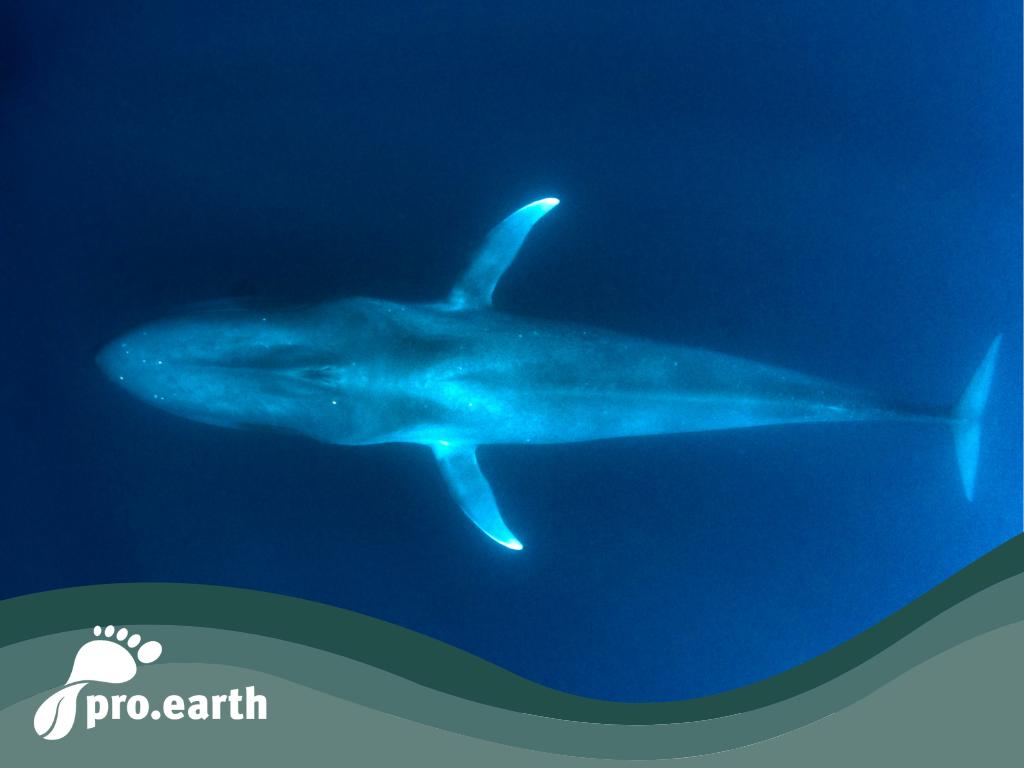Underwater noise kills - the solution would be so simple

The noise is life-threatening for many underwater animals. According to a recent study, this could be massively improved by a simple measure - reducing the speed of cargo ships. As this would entail financial losses, it is probably difficult to implement.
There is no question that our standard of living would not be sustainable without cargo ships. More than 80 percent of international goods transportation takes place at sea.
It is probably no surprise that this puts a strain on busy transport routes
The cargo ships consume vast amounts of fuel, emit incredible amounts of greenhouse gases and are not what you would call "quiet".
The sensitive ecosystem is massively disturbed by the intense noise.
This is life-threatening for mammals such as whales.
What does the noise do to the animals?
"These animals rely heavily on their hearing for their entire behavior. Loud ships therefore disturb them accordingly," explains postdoctoral researcher and ecologist Charlotte Findlay from Aarhus University in Denmark
Both foraging and communication with conspecifics are severely impaired.
Measures against the negative effects of noisy cargo ships would be absolutely necessary.
https://news.pro.earth/2023/03/05/erstmals-schutz-von-hochseegebieten/
Three approaches to noise reduction
New technologies
"There are many technological approaches that could be helpful in the future - from more efficient and, above all, quieter propellers and propulsion systems to complex devices that dampen the noise with the help of an air bubble curtain on the underside of the ships, for example," says the ecologist.
Relocation of busy trade routes
"Especially near known marine protected areas, the ships could take a bit of a detour without losing too much time."
According to the ecologist, environmental protection is also becoming increasingly important in retail companies, but it remains to be seen whether the relocation of trade routes on a large scale is a real possibility.
"A few companies are already taking the protected areas very seriously, but there is definitely still a lot of room for improvement."
Reduce speed
According to the ecologist, the third approach, which is the easiest to implement, has great potential:
"There is increasing evidence that a reduction in speed can significantly reduce ship noise," says Findlay.
As part of the EU-funded SATURN projectto reduce underwater noise, the ecologist is now investigating how much.
The results have now been presented in the journal "Science Advances".
This means that even a 20 percent reduction in speed would reduce ship noise under water by around six decibels (dB).
This means that a whale 300 meters away from a cargo ship is exposed to around 118 dB of ship noise.
As soon as the ship slows down by 20 percent, the volume is reduced to 112 dB.
What is particularly important in this case, however, is that the time in which the animal hears the ship is reduced from 25 to 16 minutes. The lower speed also means that the ship noise does not spread as much, which means that only half as many animals are disturbed by the ships.
Slower ships would have further advantages:
Fuel consumption and emissions would decrease, as would the number of dangerous confrontations with stressed whale populations.
It is to be hoped that the many advantages will persuade retailers to at least consider reducing speed - at least until technological developments catch up.
https://news.pro.earth/2023/06/09/es-gibt-noch-unberuehrte-oekosysteme-los-zerstoeren-wir-sie/






